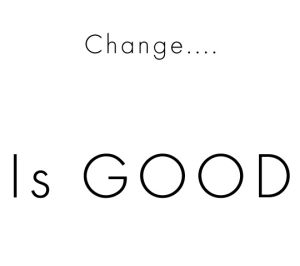Change:not just for chumps, piggy banks
April 19, 2010
Change is inevitable.
In fact, the world has never changed so rapidly from day to day as it does right this second. Yet, despite everything history has showed us – despite everything we’ve witnessed just in our generation alone – we still continue to fight change, resisting the chance to progress.
My favorite example of opposition to change is my grandparents. In their 70s now, they’ve lived on the same farm for decades and still do many things the way they’ve always done them, including communication with others. When asked why they’re so stubborn to use a cell phone or get Internet access on their computer, my grandpa always replies, “I’ve lived all my life without it. Why do I need it now?”
While I can accept certain levels of resistance to change (like my grandparents), I worry too much opposition may hinder other areas of progress that could affect our future. Call me ridiculous, call me radical, call me whatever you wish, but I believe the following examples demonstrate why we still have several steps to take before we can continue walking down the path of progress.
I’ll begin with the age-old topic of energy production and consumption. We’re all tired of hearing about global warming and climate change, but the topic is age-old for a reason – we haven’t done enough about it to make it go away. Sure, we’ve made some technological advances in aspects of travel and domestic living, but we are far from making our world energy efficient.
In fact, we’re beginning to work our way backward. Recently, President Obama decided to open the Atlantic Ocean to oil and natural gas drilling (despite the fact there’s no guarantee how much oil will be found). So, rather than using our government’s money to invest in research for alternative energy sources, we’re reverting back to our old ways and sticking to the motto, “Drill, Baby, Drill.”
Another major concern for change in the U.S. is health care, which at times seems absolutely ironic to me. As a country, we are so absorbed with providing medical assistance to everyone, yet we’re not concerned with taking care of ourselves to begin with. For instance, we have become so obese that our parents now have a better chance at living longer lives than we do. If we made more of an effort to be healthy in the first place, maybe we wouldn’t need additional health care to cover the costs of things like heart disease, diabetes and high cholesterol.
Additionally, we place our confidence for change in many of the wrong advances in the health and wellness field. For example, many people fear the consumption of newly developed organic foods, yet we’re confident the latest dietary supplement will be the answer to being healthy. Here’s a news flash for everyone: every bit of food we consume, from grains to vegetables, has been genetically modified since the time we began cultivating crops. And if you really think dietary supplements are always good for you, try defining all of the ingredients on the side of the bottle.
My point in all of this is that if we don’t stop resisting change, the planet we provide for our children and grandchildren will be less than promising, and we won’t be around long enough to make a difference. Unless we starting sprinting down the path of progress, our actions will catch up to us sooner than we think.



